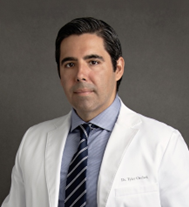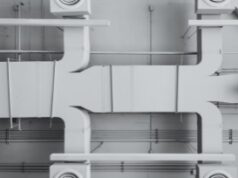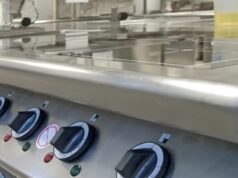
Hotels are the backbone of the tourism industry, which is still recovering from the Covid-19 pandemic, flight delays and lower bookings than usual. However, there’s an additional concern that the industry is facing. Studies show that tourists are hesitant to stay in rooms with poor or questionable indoor air quality.
Findings show that air purification improvements can reduce Covid-19 infection by a factor of 10. In addition to Covid-19, headaches, throat and eye irritation, fatigue and dizziness are all symptoms of poor indoor air quality (IAQ). These symptoms can be debilitating and affect one’s health long term. In fact, airborne contaminants in indoor spaces ranks highly among all environmental risks in public health.
A hotel is at the heart of a traveler’s experience. Guest safety and comfort should be prioritized. Airgle knows that the hospitality industry must prioritize the general health and wellbeing of their guests, which they can do with world-class air purification systems among other measures.
Stand-alone air purification systems are a must when it comes to wide scale improvement of hotels’, or any buildings’ IAQ. HVAC systems are designed with heating and cooling in mind, allowing for a more porous design that can often miss the smallest viral pathogens. CoV-2 can be as small as 0.1 microns on average in diameter. Most buildings and hotels were simply never designed with ventilation systems necessary to combat these pathogens.
Hotels shouldn’t back down from taking steps to improve their IAQ for guests. Here are a number of ways to tackle IAQ:
Medical-Grade Air Purification
Stand-alone, medical-grade, and commercial air purification systems are significantly more effective than HVAC systems in filtering out pollutants as well as airborne viruses, bacteria and mold. With continuous air changes each hour, air is able to be drawn into the system and purified more efficiently than standard HVAC systems.
How well a purifier is able to contain airborne contaminants like pathogens and mold, as well as volatile organic compounds and ultra-fine particulates, is largely determined by the type of filter used. The effectiveness of an air purification system correlates with the integrity and quality of the purification filter media itself.
At Airgle, our air purification systems are engineered to combat airborne pathogens (including CoV-2), ultra-fine particulates and VOCs. By utilizing a cleanroom-grade cHEPA filter with a capture threshold of 0.003 microns, 100 times more discriminating than traditional HEPA, Airgle purifiers are uniquely capable of capturing the smallest of airborne particles and viruses.
Fresh Air & Increased Ventilation
The introduction of fresh air to a space is a critical aspect for reducing contaminants in spaces that might be concentrated within them even if this method is not as impactful as using a stand-alone air purifier. Opening windows and well-placed fans in common spaces are two ways hotels can improve air quality indoors.
Hotels feature a number of places where crowds can gather—lobbies, gyms, pools, etc.—which is why increasing air flow and ventilation is a fundamental part to improving air quality. Oftentimes, HVAC systems are set to “auto”, which can negatively affect air quality as they will turn off at certain times, allowing contaminants to stay in the air longer. Systems should be on during the hotel’s busier periods and during room changes specifically.
Identify Sources of Contamination
Areas where air quality can be compromised should also be stomped out. Address sources of potentially poor air quality and control environments to curb poor air quality. Air purification systems are strong, but their impact is made easier when they have less pollutants to combat. Older buildings are hotspots for asbestos, and mold is common in wetter and humid areas like gyms and pools. Removing and correcting these sources can have an immediate positive impact on the safety of staff and guests.
While Covid-19 posed significant disruption to the hospitality industry, it highlighted the need for improved IAQ for guests. People are now looking for spaces that they know are taking all of the appropriate precautions to keep them safe and healthy. Crowds gather in hotels throughout the day, guests come and go, and a high volume of employees spend hours in these spaces as well. For the purpose of business and public health, hotels must prioritize IAQ if they want to ensure success in the long term.
About the Author:
Dr. Tyler Orehek is the President of Airgle Corp., North America, a global leader in the air purification industry. Beginning his professional career in 2003, Dr. Orehek owned and operated a multidisciplinary practice in midtown Manhattan and served as the primary-care physician and portal-of-entry healthcare practitioner, with a special emphasis on the treatment of pulmonary and neuromusculoskeletal conditions. Dr. Orehek has been an indoor air quality specialist since 2007. He is also a Council-Certified Indoor Environmental Consultant (CIEC), board-awarded by the American Council for Accredited Certification (ACAC).
About Airgle Corp., North America
Headquartered in New York for over 20 years, Airgle Corp. has been at the forefront of designing and manufacturing FDA-listed, air purification solutions, engineered to combat airborne pathogens (including CoV-2), ultra-fine particulates and VOCs. Airgle is the only manufacturer to utilize a cleanroom-grade cHEPA filter, with a capture threshold of 0.003 microns, 100 times more discriminating than traditional HEPA. Airgle’s air purifiers possess a patented Titanium Pro Module, housing an ultraviolet stage, and are fully pressure-sealed and constructed of metal to ensure no leakage of airborne pollutants. Setting a new standard for professional-grade air purification, Airgle systems are certified by CARB (California Air Resources Board), AHAM, Energy Star, and are listed by the FDA and Intertek. Airgle systems have been ranked with the highest, clean air delivery rate (CADR) by AHAM for the 17th year in a row.







